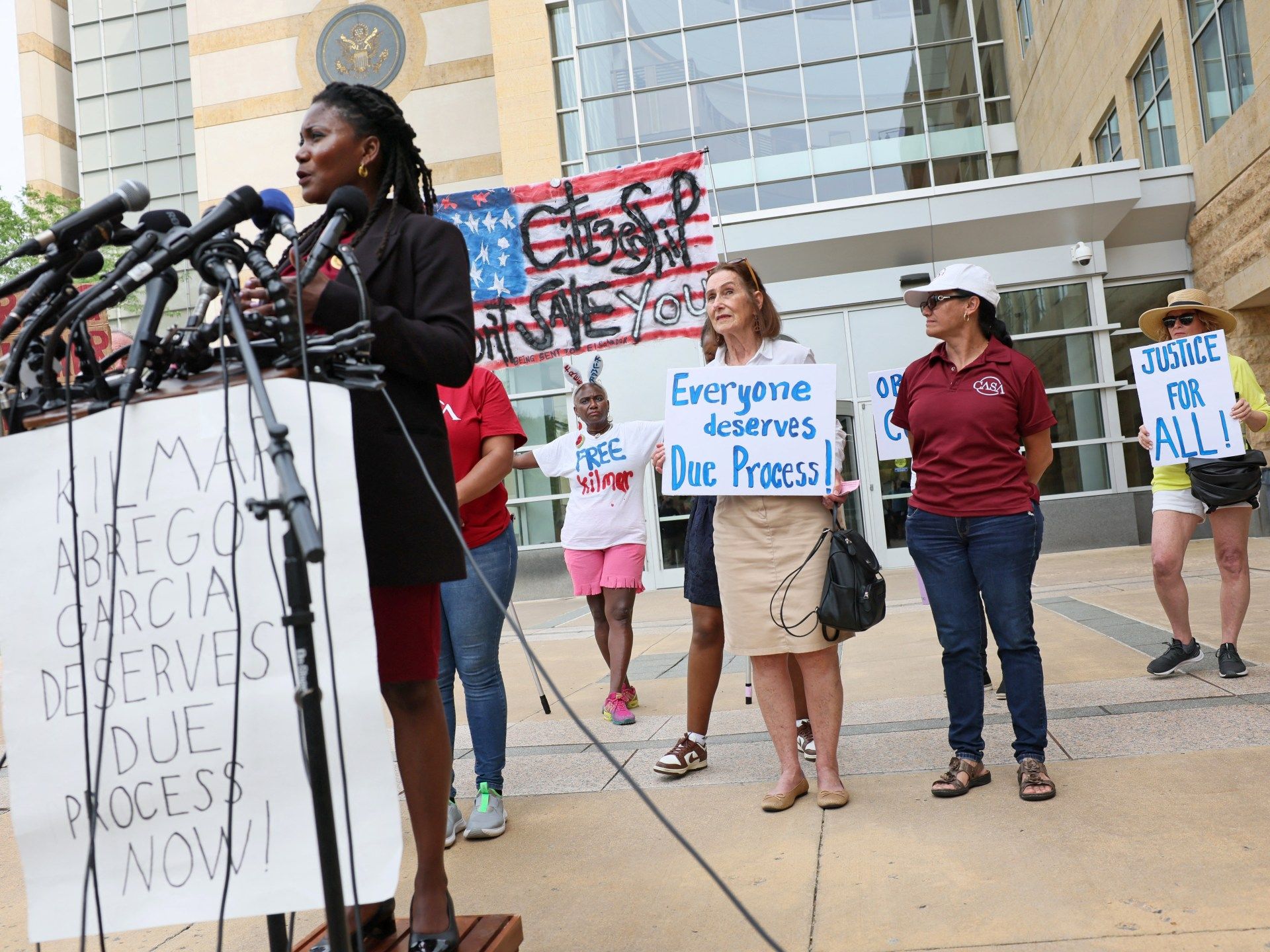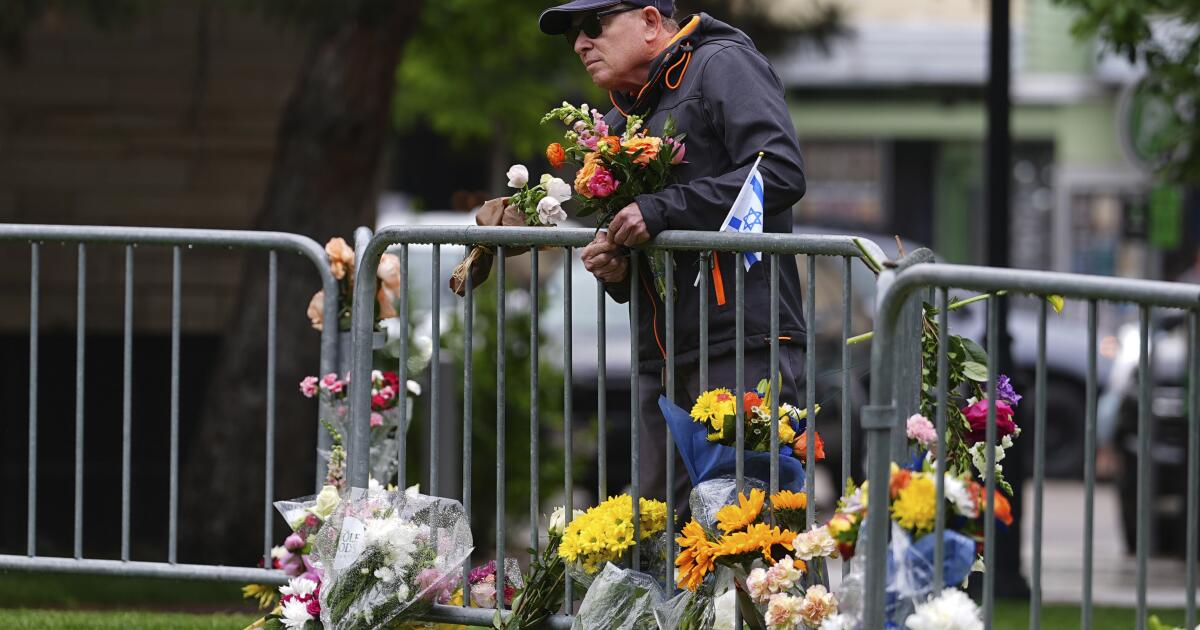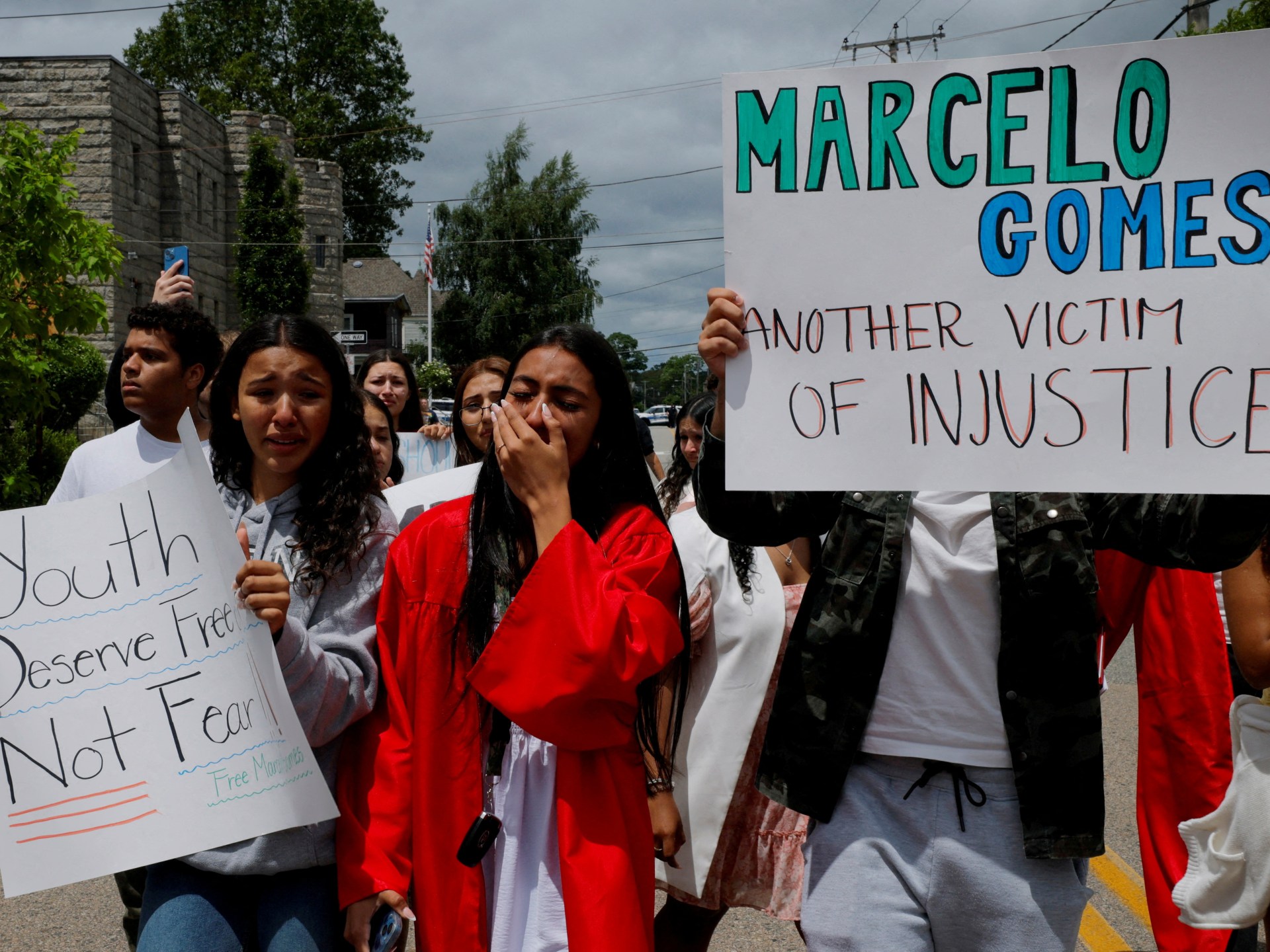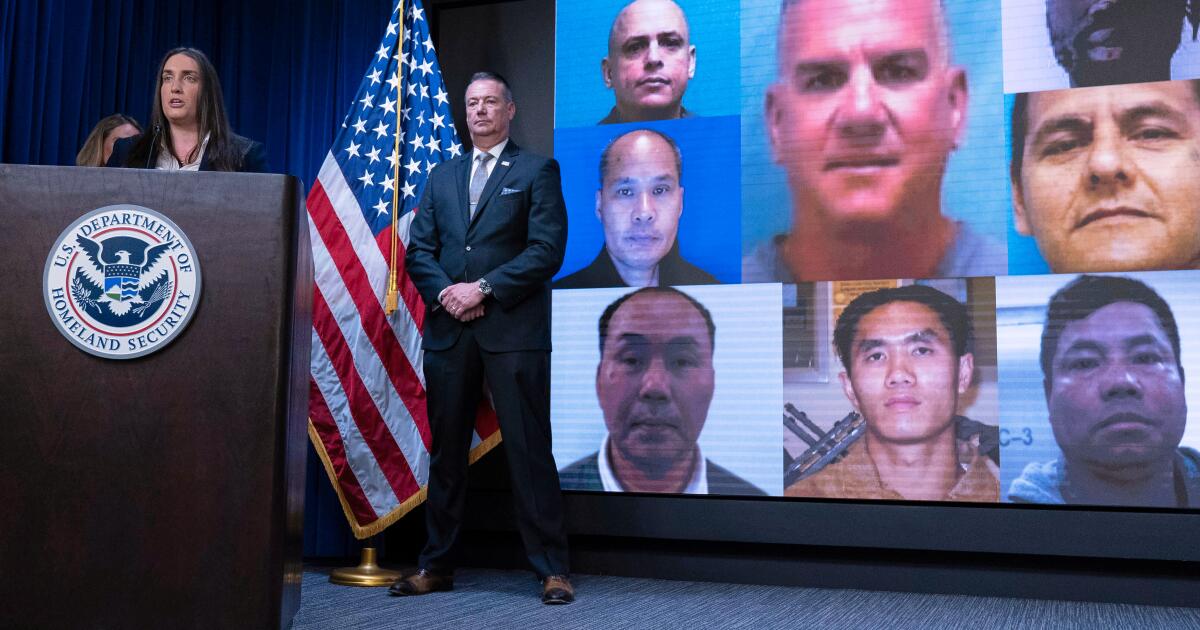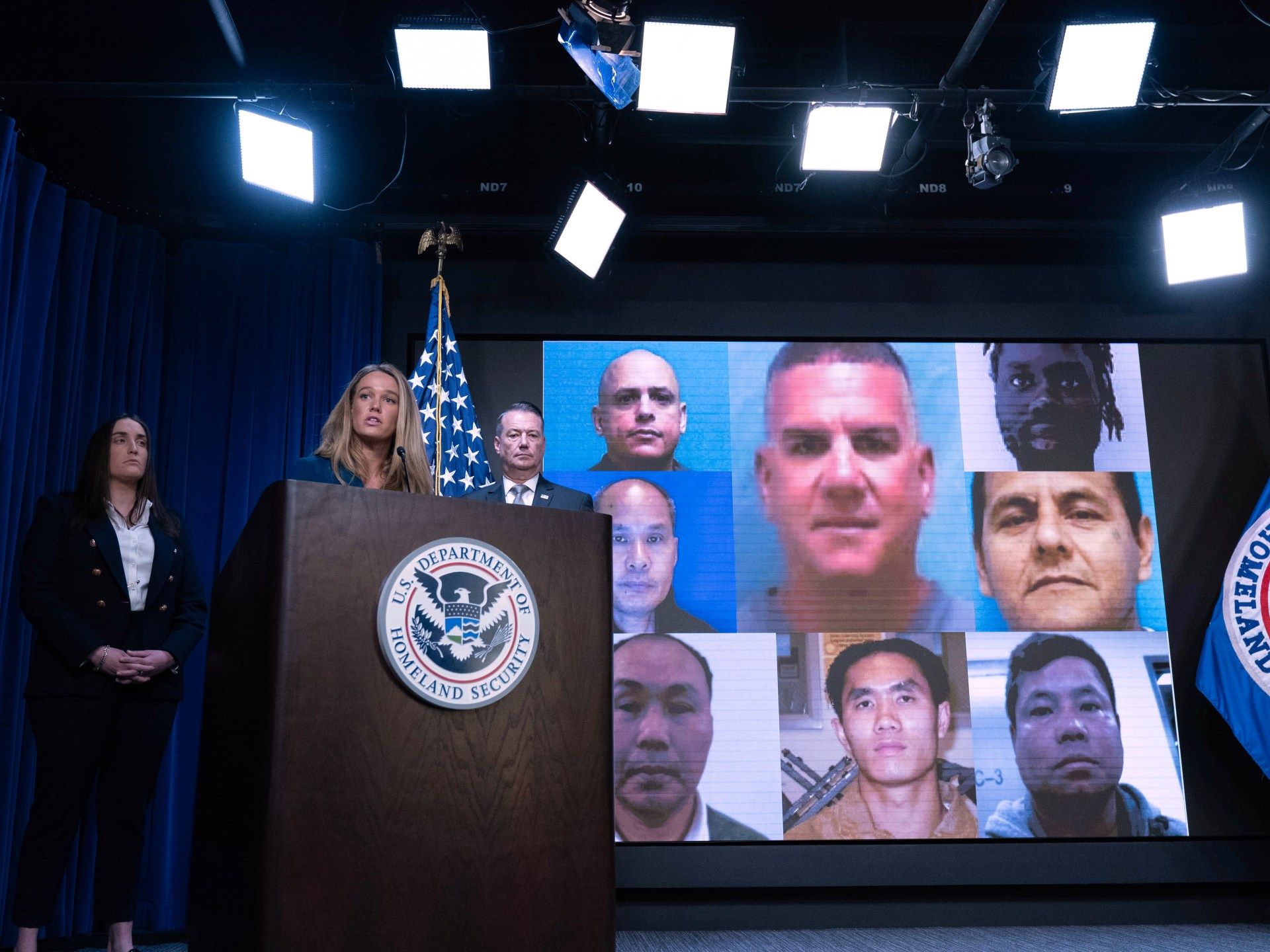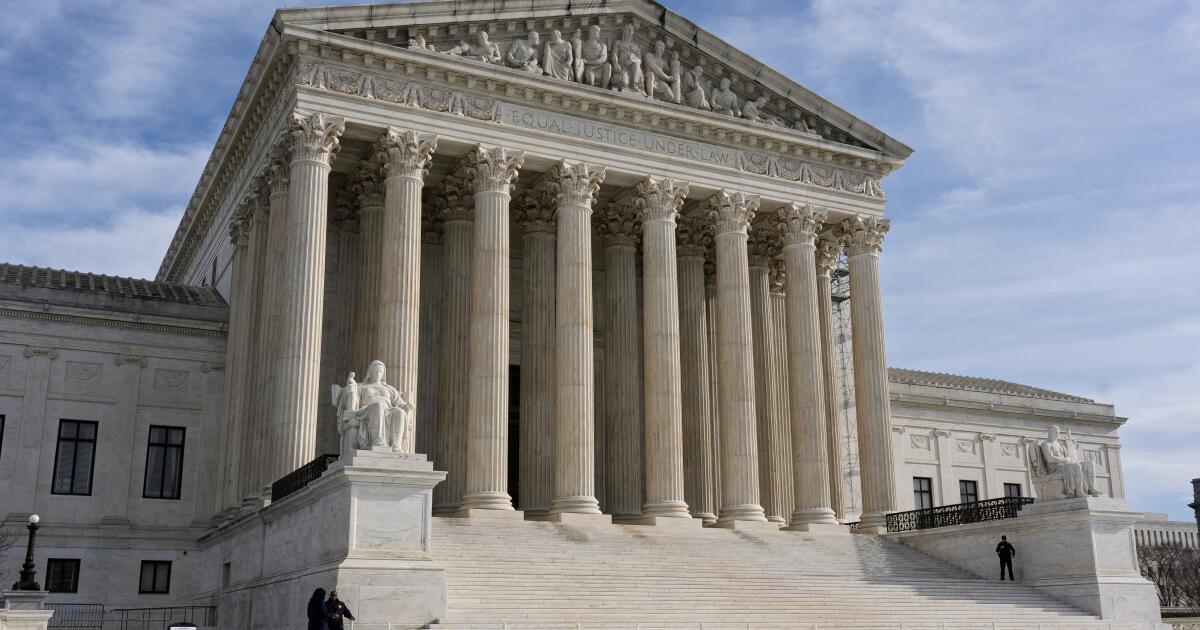Trump administration sues Maryland court system over deportation rulings | Donald Trump News
The administration of United States President Donald Trump has filed an extraordinary lawsuit against the Maryland district court system and its federal judges, accusing them of having “used and abused” their powers to stymie deportations.
The complaint was lodged late on Tuesday. In its 22 pages, the administration accuses Maryland’s federal courts of “unlawful, anti-democratic” behaviour for placing limits on Trump’s deportation policies.
Fifteen district judges are named among the defendants, as is a clerk of court, one of the administrative officials in the court system.
The complaint advances an argument that Trump and his allies have long made publicly: that the president has a mandate from voters to carry out his campaign of mass deportation — and that the courts are standing in the way.
“Injunctions against the Executive Branch are particularly extraordinary because they interfere with that democratically accountable branch’s exercise of its constitutional powers,” the lawsuit reads.
It seeks an immediate injunction against a recent ruling from Chief Judge George Russell III, who was appointed by former President Barack Obama.
Russell had issued a standing order that would automatically take effect each time an immigrant files a petition for habeas corpus — in other words, a petition contesting their detention.
The chief judge’s order prevents the Trump administration from deporting the immigrant in question for a period of two business days after the petition is filed. That time frame, Russell added, can be extended at the discretion of the court.
The idea is to protect an immigrant’s right to due process — their right to a fair hearing in the legal system — so that they have the time to appeal their deportation if necessary.
But the Trump administration said that Russell’s order, and other orders from federal judges in Maryland, do little more than subvert the president’s power to exercise his authority over immigration policy.
“Every unlawful order entered by the district courts robs the Executive Branch of its most scarce resource: time to put its policies into effect,” the lawsuit argued.
Trump’s immigration policies have faced hundreds of legal challenges since the president took office for his second term in January.
Tuesday’s lawsuit admits as much, citing that fact as evidence of judicial bias against Trump’s immigration agenda.
“In the first 100 days of President Trump’s current term, district courts have entered more nationwide injunctions than in the 100 years from 1900 to 2000, requiring the Supreme Court to intervene again and again in recent weeks,” the lawsuit said.
The Supreme Court has upheld the right to due process, writing in recent cases like JGG v Trump that immigrants must be able to seek judicial review for their cases.
But critics have argued that other recent decisions have undermined that commitment. Earlier this week, for instance, the Supreme Court lifted a lower court’s ruling that barred the US government from deporting immigrants to third-party countries without prior notice.
Tuesday’s lawsuit against the Maryland federal court system appears poised to test whether the judicial branch can continue to serve as a check against the executive branch’s powers, at least as far as immigration is concerned.
The lawsuit attacks Maryland’s immigration-related court orders on several fronts. For example, it questions whether “immediate and irreparable injury” is likely in the deportation cases. It also asserts that the federal courts are impeding immigration courts — which fall under the authority of the executive branch — from greenlighting deportations.
But the complaint also emphasises the need for speed in executing the removals of immigrants from the US.
“Removals can take months of sensitive diplomacy to arrange and often do not completely come together until the last minute,” the Trump administration’s lawsuit said.
“A delay can undo all of those arrangements and require months of additional work before removal can be attempted again.”
Maryland is a reliably Democratic-leaning state, and the Trump administration has been dealt some significant setbacks in its federal courts.
That, in turn, has led the president and his allies to denounce the courts for “judicial overreach”, a theme reprised in Tuesday’s court filing.
One of the most prominent immigration cases unfolding in the US is that of Kilmar Abrego Garcia, a Salvadoran immigrant and resident of Maryland who was deported despite a protection order allowing him to remain in the country. His lawyers have maintained he fled El Salvador to escape gang violence.
His deportation was challenged before District Judge Paula Xinis, one of the judges named in Tuesday’s complaint.
Xinis ruled in early April that the US must “facilitate and effectuate” Abrego Garcia’s return from the El Salvador prison where he was being held, and the Supreme Court upheld that decision — though it struck the word “effectuate” for being unclear.
The Maryland judge then ordered the Trump administration to provide updates about the steps it was taking to return Abrego Garcia to the US. She has since indicated the administration could be held in contempt of court for failing to do so.
Abrego Garcia was abruptly returned to the US on June 6, after more than two and a half months imprisoned in El Salvador. The Trump administration said it brought him back to face criminal charges for human trafficking in Tennessee. That case is currently ongoing, and Abrego Garcia has denied the charges against him.
That legal proceeding, and Xinis’s orders, were not explicitly named in Tuesday’s lawsuit. But the complaint offered a broad critique of orders like hers.
“Defendants’ lawless standing orders are nothing more than a particularly egregious example of judicial overreach interfering with Executive Branch prerogatives,” the lawsuit argued, “and thus undermining the democratic process.”
